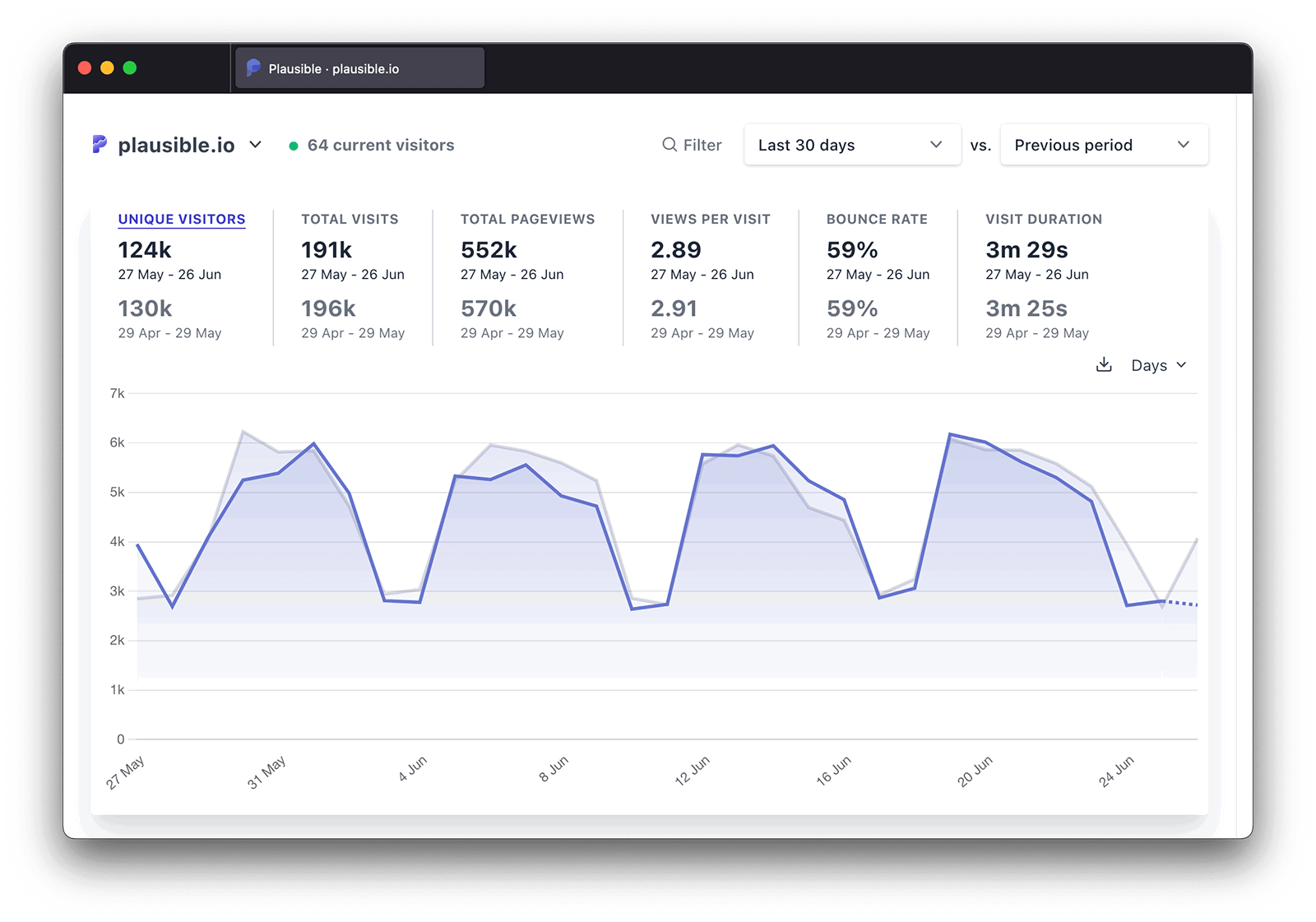About Plausible Analytics
Plausible Analytics is a privacy-focused web analytics platform built for organizations that want reliable measurement without regulatory complexity. We are an independent, self-funded European company operating under EU data protection law.
We believe web analytics should serve website owners without exploiting their visitors, delivering useful insights while respecting privacy by default.
Plausible runs on modern, scalable infrastructure designed for long-term operational reliability. More than 16,000 paying subscribers trust us to measure their websites without compromising visitor privacy, including organizations operating in regulated and privacy-sensitive environments.

Our story
Plausible was started in December 2018 by Uku Taht, who set out to build a simple and privacy-friendly alternative to traditional analytics tools.
Paid subscriptions launched in 2019. Marko Saric joined in 2020 to lead marketing and communications. Since then, Plausible has grown steadily through product improvement, transparent communication and word of mouth.
The company crossed $1 million in annual recurring revenue in 2022 and has continued to grow sustainably as a profitable, independently operated company.
You can read a detailed account of our early growth and decisions in our startup journey article.
Today, Plausible is used by startups, independent creators, public sector organizations and established companies worldwide.
How we’re funded
We have chosen to build Plausible through a subscription business model rather than outside investment.
Subscription revenue funds our team, infrastructure and product development. We do not sell or share customer data and we do not monetize visitor behavior.
Our primary obligation is to our customers. They fund the company and guide its direction.
Open source as accountability
Plausible is open source under the GNU Affero General Public License Version 3 (AGPLv3).
Our source code is publicly available and can be inspected, reviewed and verified at any time. Open source, combined with a sustainable commercial model, ensures transparency and long-term maintenance.
Customers are not locked in. If we were ever to make decisions that went against our stated values, the code can be forked and developed independently.
Privacy without compromise
We built Plausible to prove that useful web analytics and visitor privacy are not mutually exclusive.
We do not use cookies and we do not collect personal data. We do not perform cross-site or cross-device tracking. All analytics data is processed in aggregate.
For full details, see our Data Policy and Security documentation.